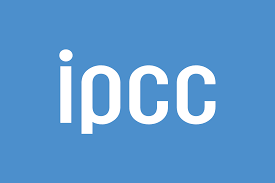IPCC and Coral Reefs
This week the IPCC released their report highlighting the science and required actions to achieve the Paris Agreement’s target of limiting global temperature rise to 1.5°C, and the key impact differential between 1.5°C and 2°C. Suffice to say the global community needs to take note that the difference of 0.5°C could have catastrophic effects. For example, coral reefs would be impacted by a 70-90% loss at 1.5°C warming, which is bad enough, but at 2°C the loss would be greater than 99% (i.e. there will almost be no coral reefs left). There are many other examples like this, detailed within the report ‘Global Warming of 1.5°C’ (http://www.ipcc.ch/report/sr15/).
So, what do we do about this? In short worldwide governments, organisations and communities need to act. The IPCC have detailed the differential pathway scenarios, projected forward, to conclude the magnitude of the changes required and not surprisingly, we need to take significant action now.
A huge contributor to global warming comes from carbon intensive power generation. This makes renewable generation and energy storage a key part of the agenda, and already this has had significant success. However, there is no doubt, there is much more to be done. Governments will continue to make this a key part of their global warming impact reduction plan.
To be able to implement more renewables and introduce storage into the mix, there are several challenges, such as: Grid constraints, co-location of assets, balancing the grid, micro-grids, supply and demand differentials etc. Here at Argand Solutions we are focused on solving these issues, and we have a number of fully developed hardware and software solutions to do this.
One of the primary challenges to greater deployment of renewables and storage is a question of economics. How will the global community afford to rapidly develop and install these systems? A question that lead us to develop GridMAP, a renewables and storage modelling tool that can model multiple combinations of size, type, and mix of technologies, coupled with complicated revenue opportunities and options. This, very quickly, unearths opportunities for clients, and helps get projects off the ground. Ultimately GridMAP is a tool to enable more rapid decision making and helps us progress more quickly to solving climate change and achieving the 1.5°C target. Let’s hope future generations have coral reefs in their world.
If you have any questions about this blog or have questions that you would like to discuss further, then please contact the team on +44-1803-864706 or email bepositive@argandsolutions.com.
If you have any questions about this blog or you would like to discuss further, then please contact the team on +44-1803-864706 or email bepositive@argandsolutions.com.
To find out more you can listen and subscribe to our Podcasts at http://bit.ly/Argand_IPCC
Ben Markillie is Technical Director at Argand Solutions Ltd.


